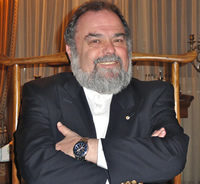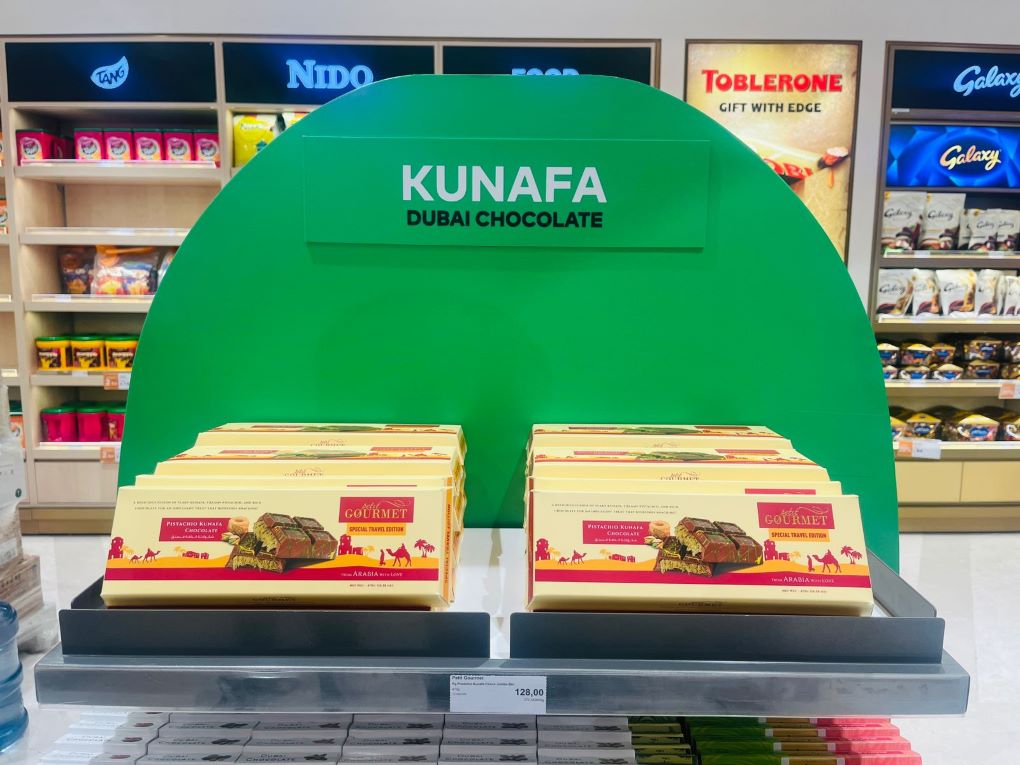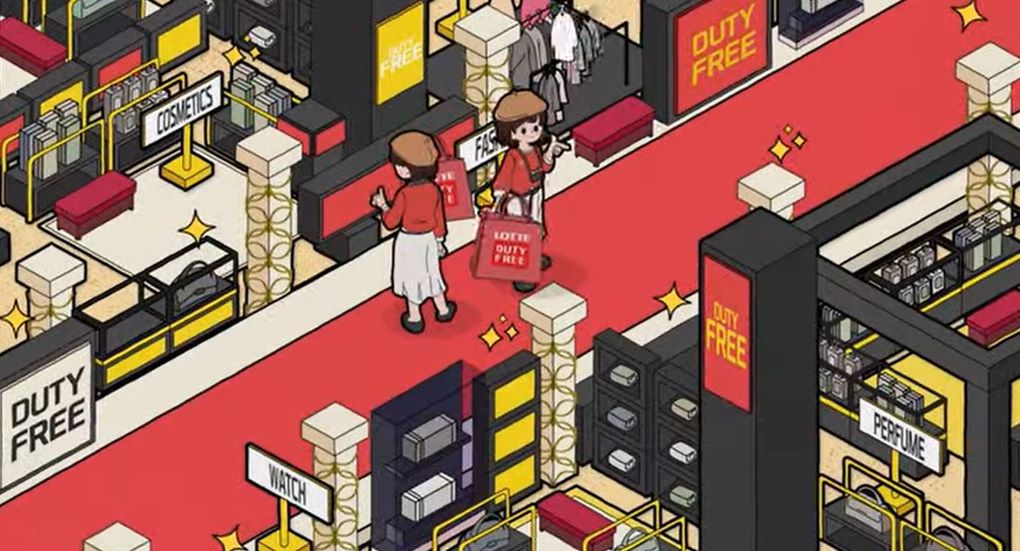The Moodie Davitt Report brings you the latest instalment in our popular series Ten Easy Pieces*, in which we get up close and personal with leading travel retail personalities via ten snapshot questions.
In this edition we meet entrepreneur Steven Goldstein, a travel retail veteran with a sweet tooth and a golden touch. As Founder of Swiss chocolate brand Goldkenn, Goldstein became a key influence in developing confectionery in the channel. Now he is turning his talents to a new African brand.
 1. Where were you born and raised?
1. Where were you born and raised?
I was born in Roanne, a small city in the centre of France. My parents had moved to that area at the end of World War II. They were not very wealthy but ensured that my younger brother and I had a normal childhood. We were both pretty typical boys.
My father had a lot of foresight and he decided that we needed to learn languages to secure our futures in Europe. He used to say that someone with a menial job would be paid more if he or she spoke more than one language. I was 12 and my brother just ten when we were sent to a boarding school in Hove, England to learn English.
I remember it was tough. We spoke no English and all the lessons were in English. I think it was there that I learnt to ‘fight’ my way through any difficulties. We both managed the language and then my father sent me off to a grammar school in Germany to learn German as well!
2. Tell us about your studies in philosophy at the Grenoble and Frankfurt universities, which opened the door to one of the most enriching periods of your life.
In the early 1960s, Frankfurt University was a place where lots of new ideas were starting to bloom and would later spill out over Europe. Most of the student movements had their sources in the auditoriums of the philosophy classes. I learned some Italian and Spanish (hearing my father’s words again!) and tried my hand at painting and ceramics. Those years opened so many doors, extended my world. I loved the arts but quickly realised that my talents were more as an observer and I channeled my fascination of the art world into its history.
It was the start of a life-long love which I have maintained through my own collection of Asian art.
3. You started to work in television, specialising in children’s programmes and then as a news editor and producer. Did you ever consider a career in the media?

Following my studies I worked as a manager at Knowledge International Marketing (KIM), a company which owned copy and merchandising rights on children’s TV programmes. I looked after the development of markets in Europe and had the opportunity to work with some big companies, Nestlé for example.
Thanks to my Dad’s language vision, I got involved with a film dubbing company and was lucky enough to work with the then ‘queen’ of French film dubbing, French actress Jacqueline Porel. In her shadow I learnt a lot about the dubbing business.
From there I moved to the Paris-based Europe 1 radio station. I started as Assistant Producer and moved on to become a News Editor. It was a fascinating time. I was in the middle of the student revolt and civil unrest in Paris in 1968; an exciting period to be involved in a changing world.
Yes, I did consider a career in the media. But at that time it was very politically motivated and complicated to keep your job. I had met my wife Dany and realised it was better to move on.
My previous boss at KIM opened his own company and asked me to join him. And, again, I was very fortunate to participate in a great adventure. He acquired the rights for Smiley and I launched the character in many European countries, with Agfa in Germany and Mars International through Bonito products. In Spain I was called ‘Señor Sonrisas’ (Mr Smiles). I became the International Manager of the company until I decided to quit that job over a difference of opinion.
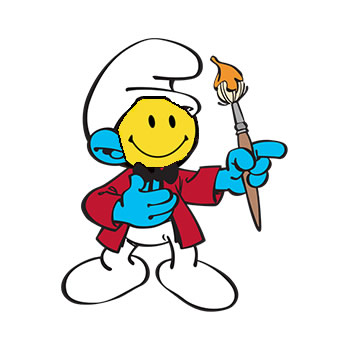
4. 1975 and you set up Axions, a distribution agency with a myriad of interests. What prompted that?
Axions came into being through the partnership with my ‘Chinese brother’, Humphrey Lau, whom I have worked with now for more than 40 years. We have been able to get distribution for many major eyewear brands throughout Asia and we are still distributing Porsche Design eyewear to Hong Kong and Macau.
I met my friend and long-time partner Christian Belce-Kennedy around 1978 or 79. We were both looking for new ventures. He came to me with a request from one of his Japanese customers, who was close to a huge Korean-Japanese confectionery company, Lotte. He told me that they were looking for a European children’s character for a sales promotion. I immediately thought about The Smurfs, created by the Belgian author Peyo. I knew his agent. Christian and I managed to get the rights, made a contract with Lotte, and literally took The Smurfs to Japan.
5. A few years later Goldkenn was born, cementing your partnership with Christian and the beginning of one of travel retail’s great success stories. Why chocolate?
One day Christian and I were sitting having a coffee in Milan. We started talking about a new product that could represent Switzerland, a product that could fit into the fantasy image foreigners had of the country. You know mountains, Heidi, watches and the likes. Ha, we had loads of ideas; talked for ages until we settled on the idea of chocolate.

Neither of us had any money to spend on an advertising budget and that, of course, was vital because we had decided to sell a new chocolate product in a country that is famous for its chocolates. So we had to identify a new market and duty free became our objective. We discovered that there were no chocolates in the shops, even though it was considered by major companies as a way to get the last coins out of their customers’ pockets. And, of course, the Euro didn’t exist then!
We found a chocolate company that was struggling, close to bankruptcy, and they worked with us to come up with our first Goldkenn chocolate product: a wooden box made to look old and featuring a touristy poster view of Switzerland.
At first we didn’t have an outlet in Geneva Airport; only the newspaper kiosk was selling chocolates. So different to the airport business of today! Any ‘concessions’ were held by the Cannonica family and Christian and I wanted to sell our products in a different way. The only place they could accommodate our wooden boxes was in a bar next to the duty free shop that sold only cigarettes, liquor and perfume. So we delivered a dozen boxes and were on the phone every half an hour with the person in charge to learn if something had sold.
The next day we had to deliver more chocolates.
I think everyone was laughing at us. They figured it was like opening a new spaghetti factory in Italy. When we managed to launch the company all our major competitors predicted that we would disappear in less than six months. But they were wrong.
“I think everyone was laughing at us. They figured it was like opening a new spaghetti factory in Italy.”
We founded Goldkenn (the combination of our two surnames) and produced the product which has become an icon: a gold bar wrapped in packaging to combine two of Switzerland’s best-known symbols, its chocolates and its banks. Goldkenn still exists after 30 years and has become a world brand. When I think that some of the first sales were made out of the trunk of my car in front of the Cannes duty free exhibition venue as we couldn’t enter, having no invitation, it still makes me smile.
6. Let’s look at your latest venture in travel retail. After a string of specialist marketing ventures including ‘blingy’ accessories for iPhones, and Primalac powder milk formulations, you are back with chocolate. What attracted you to Afrikoa?
Yes, over the years, we have been involved with a range of specialist products, including those mobile phone accessories which were a disaster. I have been fortunate in meeting great people in the Primalac baby formula company, which is ongoing and successful, and now we have Afrikoa.
Afrikoa is something I feel that is not only good, it is fabulous and I don’t just mean the taste (and anyone who knows me knows how much I love good chocolate!).
It’s a ‘bean-to-bar’ company which is based in South Africa but works with cocoa farmers in Tanzania. The company buys at a premium price, which is around 250% more than what the wholesalers pay to the growers, in order to offer those farmers a decent price and a decent life.
A lot of thought has gone into the development of Afrikoa, even in the factory where manual work is encouraged over machinery. They want to keep locals in work and have shied away from using machinery when people can do the same job.
“We don’t need to be just making money. It’s much more than that now. It’s about people’s rights to have a good life and I believe everyone is entitled to that.”
It’s a big challenge but I think we will make it work. My aim is to see Afrikoa in all duty free and travel retail shops across Africa. Then we will see. I believe this has the makings of a great brand, first in Africa, but also for the international market.
It shows we don’t need to be just making money. It’s much more than that now. It’s about people’s rights to have a good life and I believe everyone is entitled to that.
7. Travel retail may know you affectionately as the ‘chocolate king’ but there are many strings to Steven Goldstein’s bow, aren’t there? How, for example, did you become Switzerland’s Honorary Consul for the Federation of Saint Kitts and Nevis?
Many years ago I was in Barbados and met a doctor from Saint Kitts and Nevis. I must admit that I didn’t have a clue where it was and had to look it up in an atlas. Months later I received a telex (no email then!) from the same doctor. The islands had been hit by a hurricane and needed medical supplies and assistance. Well, I did what I could and later received a letter from the Prime Minister’s office asking if I agreed to become their Honorary Consul for Switzerland. That was more than 20 years ago.
It’s a great country, a democratic federation, where the Heads of State are really interested in the welfare of their citizens.
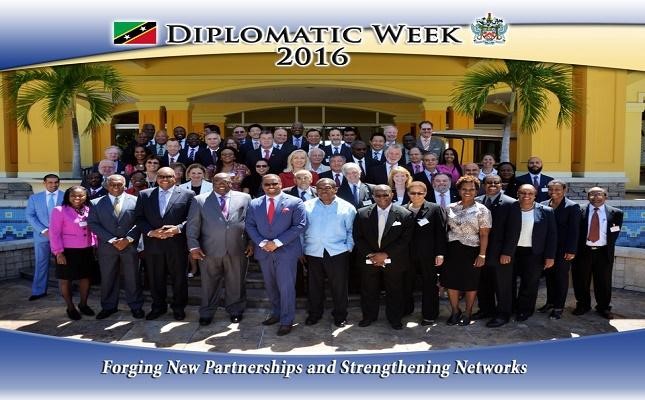
I was invited to an event at St James’s Palace a few years ago. At such events the visitors form a large circle; on one side Queen Elizabeth was walking with the former Queen of Greece, a charming lady from the nobility of Denmark, and Prince Phillip was walking with the former King of Greece on the other side. As Her Majesty passed in front of me, I was introduced as “the king of chocolates in Switzerland”. The former Queen of Greece moved towards me and said: “I love chocolates, you can see where they are on my hips”, knocking her hands on each side of her body. We had a great laugh.
8. And what about ‘Scenes de Crimes’, your talents as a writer and your involvement in a French television programme?
I am fascinated about how humans can be cruel, sometimes even worse than animals. But also some people have unbelievable talents. I wrote a book, in French, about psychics who helped the police. After its publication I was approached by a TV company who wanted to know if I could help them with one of the stories.
A young Italian woman, in her early 30s, had apparently gone to a party organised by some of her co-workers. When she left the party at 1am she was sober. She took off in her four-wheel drive vehicle and disappeared for more than three years.
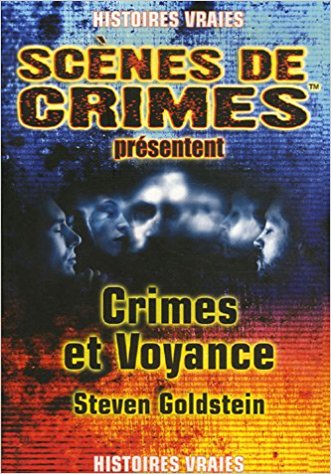
The police found no trace, neither of her nor the car, and told her parents she had probably run away with a boyfriend to Spain. Anyway, one of my friends, a journalist on the Italian Daily Corriere de la Serra, suggested that the mother should contact Anna Maria Busi, a psychic who lived close to Milan. As the police hadn’t found any leads in three years she felt she had nothing to lose.
The psychic met with the mother, drove around Lake Como and stopped at one spot. “She’s here,” she said. The police just laughed and refused to help her, saying the whole thing was a joke. The Italian TV station RAI managed to get a camera down to the bottom of the lake; at a depth of 129m they found the poor woman and her car. RAI filmed the car being taken out of the water.
Later I was on French television about this story which underlined my belief that sometimes things happen that are difficult, or even impossible, to understand.
My second book involves satanic crimes, a very touchy area. Working on it, I realised there are some pretty crazy people out there.
And the third is about a killer in the USA who called himself BTK and had never been caught. A lawyer had written a very strong book about him, with the idea to get him back on the street if he was still alive. (True crime stories always end with the killer being caught and judged.) The book remained unfinished and the lawyer continued to taunt the killer until he took the ‘bait’ and was caught.
I had access to the police files and must admit I couldn’t sleep when I was writing his story. Here is not the place to talk about what that man did to his victims.
9. If you could invite four people to a special dinner to celebrate life who would you like to see at the table and why?
My first choice would be the German-born theoretical physicist, Albert Einstein. I have always been fascinated by his life story and his foresight. My second choice would be British statesman and former Prime Minister, Winston Churchill. He was an achiever, another man who was confronted by really tough situations and managed to get results.

My third guest would be Pablo Picasso. I have always loved the Spanish artist’s works, and the fact that he managed to renew himself constantly. That’s something I have always tried to do in my own life.
My fourth table companion would be the Russian-French artist, Marc Chagall, the only one of the foursome that I was fortunate enough to meet. I believe he was one of the greatest artists of the 20th century.
10. Multi-lingual, multi-talented, a power house in your professional and personal life. How do you switch off?
If you asked my wife, she would say I never switch off. I am always looking for a new opportunity, a new project, a new art work.
I travel a lot [Steven is a regular reviewer on TripAdvisor, with more than 47,600 readers], I read a lot, and now and again I watch television.
Voilà, that’s how I relax!
*PREVIOUSLY FEATURED TEN EASY PIECES PERSONALITIES INCLUDE:
Meet Mondelez Head of Customer Development Richard Houseago
Meet F.I.N.E Jewellery Founder Ari Johansson
Meet Blue Storks Founder and Managing Partner Arnaud Fauvarque
Meet Orlebar Brown Founder Adam Brown
Meet Meet Brilliant Cosmetics Founder and MD Mariette Scoop
Meet Tito’s Handmade Vodka International Managing Director John McDonnell
Meet Travel Blue Executive Director Jonathan Smith
Meet Antony Kime, a travel retail flying Kiwi
Meet Essilor sunglasses specialist Francesco Leccisi





